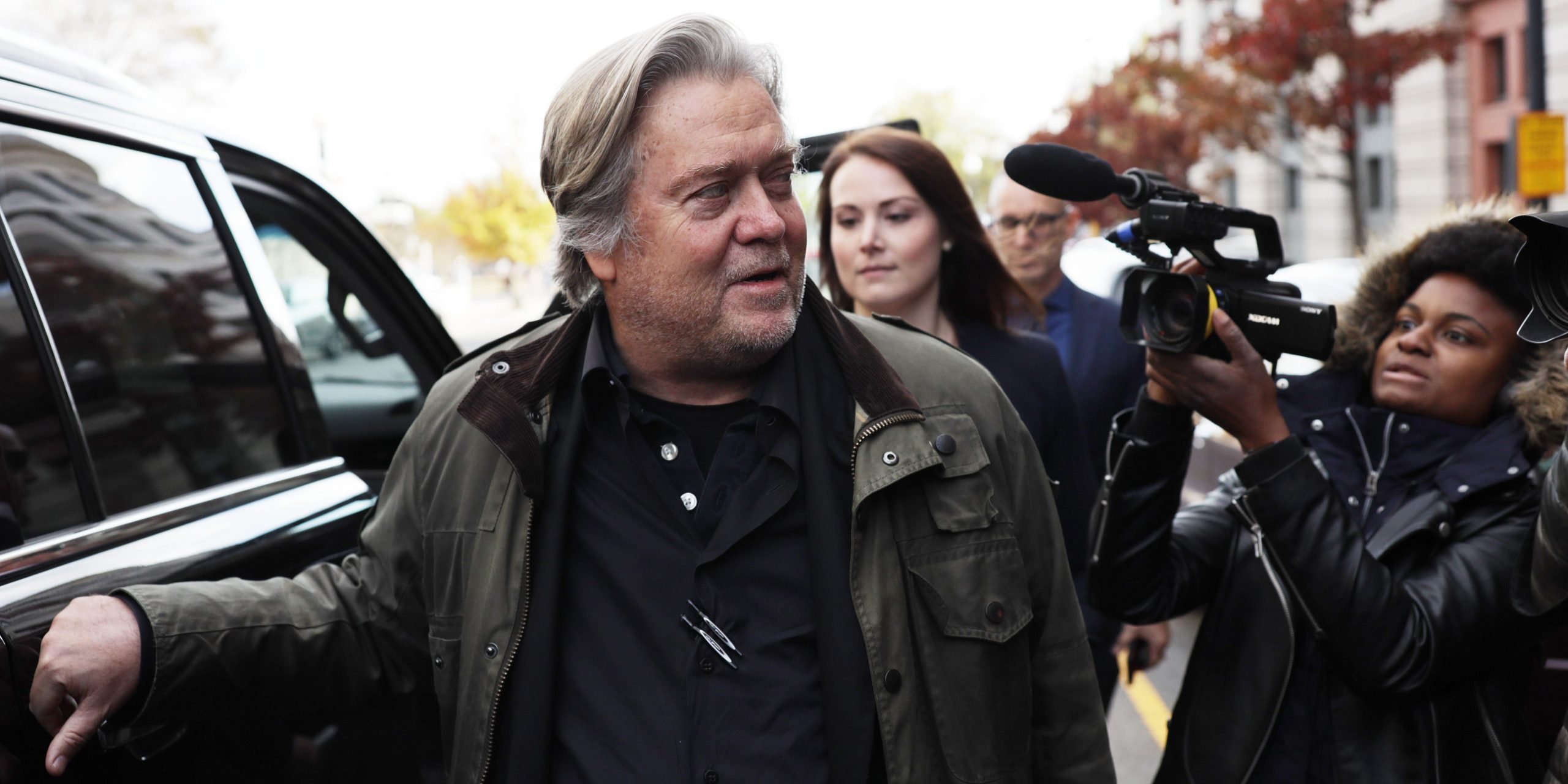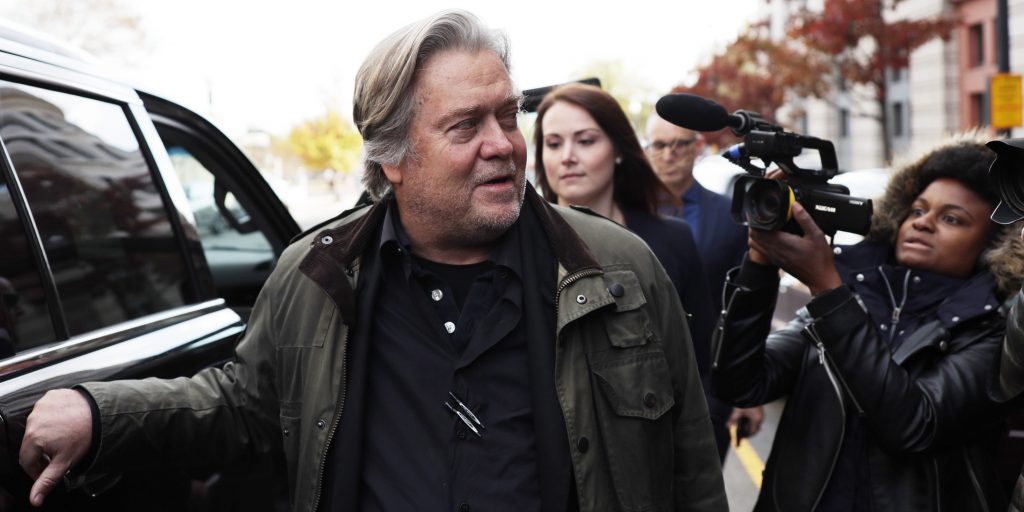
Alex Wong/Getty Images
- Former White House chief strategist Steve Bannon was indicted on 2 charges of contempt of Congress.
- Bannon refused to appear for a deposition and produce documents to a House committee investigation the Capitol riot.
- The DOJ announced the indictment Friday after the House referred Bannon for criminal contempt charges.
A federal grand jury indicted Steve Bannon, former White House chief strategist under President Donald Trump, on two felony counts of contempt of Congress, the Justice Department announced on Friday.
The indictment is the DOJ's first major signal that it intends to take Congress' criminal contempt referrals seriously.
Friday's charges come after Bannon refused to comply with a subpoena issued by the House Select Committee investigating the January 6 Capitol riot. He rejected the committee's demand that he sit for a deposition and produce relevant documents. The panel moved to pursue criminal contempt charges against him last month.
-Betsy Woodruff Swan (@woodruffbets) November 12, 2021
Insider has reached out to Bannon's lawyer for comment.
Bannon is not the only Trump associate who's failed to comply with the committee's investigation. On Friday, former White House chief of staff Mark Meadows failed to show up for a deposition, and his lawyer said it's up to the courts to resolve issues related to Trump's assertion of executive privilege over matters related to the committee's investigation.
Bannon's lawyer made a similar argument last month, telling the committee that Bannon was not required to comply with the subpoena because it was "an issue between the committee and President Trump's counsel." He added that Trump's lawyer, Justin Clark, had "directed" Bannon not to testify or turn over documents "until the issue of executive privilege is resolved."
Rep. Adam Schiff, who serves on the bipartisan select committee, told Insider last month that the panel was serious about pursuing contempt charges against those who refuse to cooperate with the investigation.
The Justice Department has previously declined to enforce criminal contempt referrals, and Schiff signaled that he expected that to change under the Biden administration.
Attorney General Merrick Garland also highlighted the apolitical nature of Bannon's indictment in a statement announcing the charges Friday.
"Since my first day in office, I have promised Justice Department employees that together we would show the American people by word and deed that the department adheres to the rule of law, follows the facts and the law and pursues equal justice under the law," the statement said. "Today's charges reflect the department's steadfast commitment to these principles."
Each count against Bannon carries a minimum of 30 days and a maximum of one year in jail, the DOJ said, adding that it also includes a fine of $100 to $1000.
Trump has repeatedly urged his associates not to comply with the select committee's investigation, and he himself moved to block the committee from obtaining records relevant to its inquiry.
But a federal judge on Tuesday dealt a stinging blow to the former president's lawsuit, which centered around broad claims of executive privilege.
Trump "does not acknowledge the deference owed to the incumbent president's judgment," US District Judge Tanya Chutkan wrote in her 38-page ruling, referring to the Biden White House's decision to turn over the records. "His position that he may override the express will of the executive branch appears to be premised on the notion that his executive power 'exists in perpetuity.' But presidents are not kings, and Plaintiff is not President."
This isn't Bannon's first run-in with the law. Last year, Bannon was charged with defrauding donors to We Build the Wall, a fundraising group he helped create to privately finance construction of Trump's US-Mexico border wall. Prosecutors accused Bannon of stealing almost $1 million of about $25 million raised and using it for personal spending. Trump pardoned Bannon shortly before he left office.
